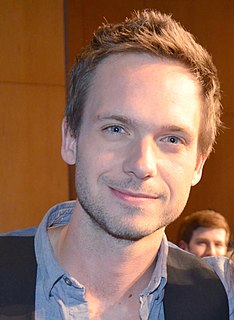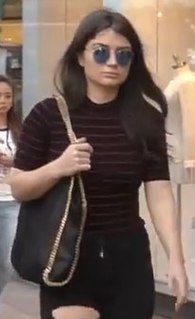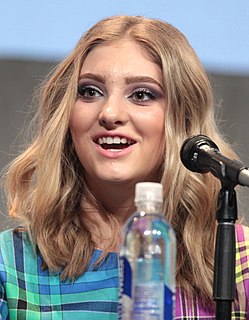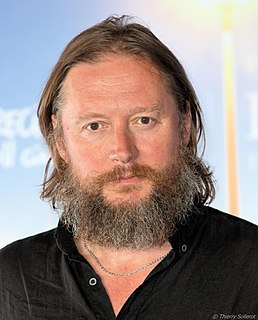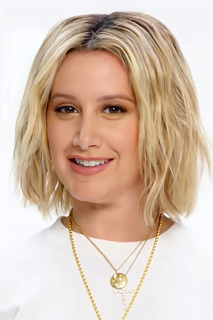A Quote by Finn Wolfhard
Well, I kind of did the math in my head when I was like, 9. I was like, 'Well, if I want to make films' - because I want to be a director - 'I could just go on a film set and learn there.' And then I ended up falling in love with acting and the set and making friends all the time. And so I've just been doing that ever since.
Related Quotes
I don't put any pressure on myself in terms of what people or fans do or don't want. It really just doesn't occur to me. I honestly just want to make the films I want to see as a fan. The film will survive or fail in my mind by how much I like it. Having said that, everyone wants their films to do well and to be well-received.
I think auditions are set up for failure because they're not really the set experience. There's no time to develop the character. You're just looking at someone... if someone's really good in an audition, sometimes they're not good in the film. It's something you learn when you're doing short films. It's the same way that some people do well at taking tests and some people don't. But when you're on a long-term filmmaking process it's a completely different feeling.
I'm planning some films in the U.K., and it will have pros and cons. It takes a lot more time to set up a film in the U.K., because you can't rely on much. In Greece, friends show up and bring what they can and you make the film. Well, that's a bit simpler than how it really is. But when you make a film with proper industries, it takes more time to synch all these things.
Doing 'All Good Things' really felt like I was acting for myself rather than anyone else. It gave me a freedom I'd never had before, or knew I had, to do whatever I want to, and to argue my opinions and not just feel like the cute girl on set or the girl in a boy's club. I figured out how I could be both. And it's been different ever since.
There is still so much that I want to see and do, but for me, it's the pure satisfaction of doing what you really want. I always had a problem doing things that I didn't want to do. I don't have a problem when my director says: "Don't do it like this; I want it like this." But generally in life, I like to do what I want, and for me the best way is through acting and making films.
My tutor was a film director on the side, and she introduced me to film. She then put me in one of her short films, and it came out of that. That's when I fell in love with the process of making a film. After that, I was about 15 and I was like, "This is what I've gotta do." So, I started taking acting lessons, and then I applied to college to do acting. I got an agent, and it all just happened.
Not only do I look at the playback with the actors, but I look at the on-set assembly footage with the sequences with my actors as well. These are the reasons why I take twice as much time to shoot a film in Korea. Thinking back, I remember on my first ever Korean film, I never used any playback or on-set assembly, so all I had to do was to tell myself it's just like making my first ever Korean-language film. After that, I felt right at home.
Ever since I was a about seven or eight; I think it was seven. My brother said "I want to start acting," and me and my sister just said, "Oh we'll try it, we'll see." It was just one of those things - we were just like, "Oh, we'll see what happens." So we ended up - all my siblings and me - we ended up just trying it, and I got that one role on In Plain Sight and then we just decided to keep going and see what happens. And then: Hunger Games.
Relationships help you learn more about what you want. If one doesn't work out, you just kind of look at it and go, Okay, well, this is what I did like and this is what I didn't like, and this is what I did wrong, and maybe I need to be more like this. And so you learn things, and that's why you grow. And you bring all the stuff that you've changed about yourself to a new relationship until you finally find that person you really, really want.
You can't show up on set and expect it all to come together. You have to have a plan, much like how the director can't just show up and go, well, where should I put the camera? That is gonna determine how it is lit, you should have already been in the room looking at it earlier, pre-lit the room, you know there is a lot of prep that goes into it, so it is the same thing with acting. You can't just show up.

